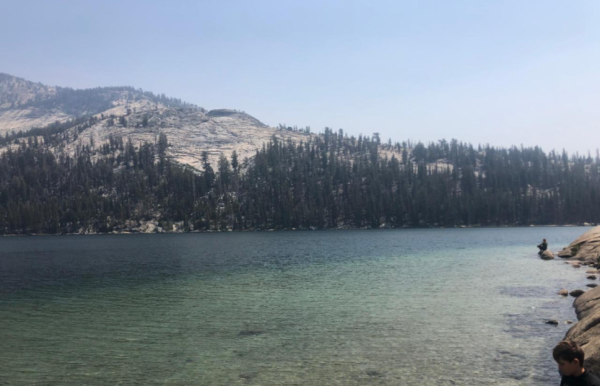Ideas for change stir after death of icy friend
On Sep. 22, 250 people dressed in black climbed a mountainside to mourn the loss of a loved one; however, this funeral was not held for a human, but a glacier.
The Pizol glacier, located in the Glarus Alps in eastern Switzerland, will be the first to be removed from the Swiss glacier surveillance network, due to the loss of around 90 percent of its volume since 2006. Those who attended honored the late glacier with flowers and the playing of alphorns. The landform was even eulogized by a local chaplain, Eric Petrini, and Matthias Huss, a glaciologist. Now that yet another devastating tragedy has occurred due to the warming climate, scientists and the public are attempting to spark some change.
“If Pizol goes, this is a warning sign. This is what is going to happen if we don’t change something about our behavior,” said Alessandra Degiacomi, coordinator of the Swiss Association for Climate Protection and organizer of the funeral march, to CNN.
According to Degiacomi, however, the seeds of change have already been planted. The Swiss Association for Climate Protection currently contains 120,000 out of the 100,000 needed signatures to launch a program demanding a reduction of Switzerland’s greenhouse gas emissions to zero by 2050.
Despite this large step forward, others find fault within the plan to reduce greenhouse gas emissions in the next 30 years. Caroline Skwara, a state lead for Ohio Climate Strike, 12, explains that the world is already experiencing the effects of this “climate crisis,” and that we cannot afford to ignore the issues of climate change any longer.
“We don’t have until 2050 to make these changes,” Skwara said.
While Skwara does believe that all citizens should work to lessen their carbon footprints, she explains that individuals are not the ones “fueling” the climate crisis; large businesses and government inaction are the primary culprits to blame. According to Skwara, it will take radical action and policy change to improve upon the state of the environment—not just “eco-friendly” diet and fashion choices.
Lorraine May, an AP Environmental Science student, 10, also expresses the necessity for change. “If we don’t make immediate changes to how we treat the environment, I anticipate that the immediate effects of our behavior will cause it to be a lot harder to change our ways.”
Unfortunately, according to Time magazine, this lack of change resulted in another casualty about a month ago for a different glacier. In August, Iceland residents mourned the death of Okjokull, a glacier announced dead in 2014. They commemorated the loss with a plaque.
As the mourning continues for one of nature’s lost wonders, so does the worry that if changes are not made soon, they never will be. As stated by the plaque in Iceland, “In the next 200 years all our glaciers are expected to follow the same path. This monument is to acknowledge that we know what is happening and what needs to be done. Only you know if we did it.”
Sources:
https://www.cnn.com/2019/09/22/europe/swiss-glacier-funeral-intl-scli/index.html
https://time.com/5684215/pizol-glacier-climate-change-switzerland/











